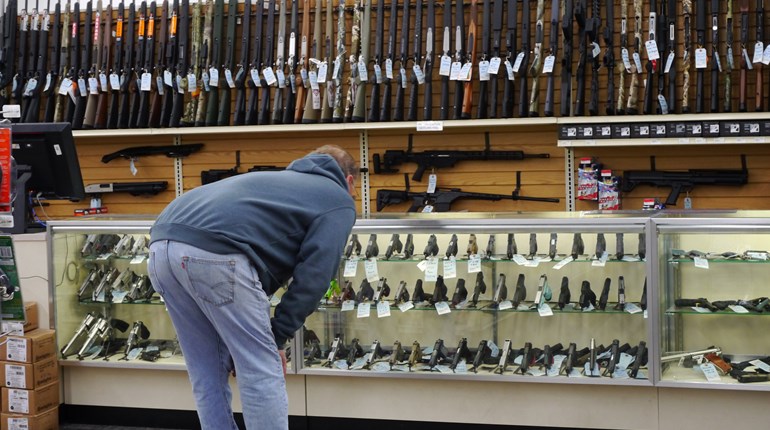
The NRA recently filed a lawsuit challenging the Bureau of Alcohol, Tobacco, Firearms and Explosives’ (ATF) overreach in redefining who is “engaged in the business” of selling firearms.
The case, titled Butler v. Garland, was filed on behalf of two individual members—Don Butler and David Glidewell—in the U.S. District Court for the Northern District of Alabama. The NRA argues that in promulgating the Final Rule in April, the agency violated the federal Administrative Procedures Act (APA), along with the Second and Fifth Amendments.
According to the filing, Butler, from Talladega, Ala., is an NRA member, firearms hobbyist, and collector, as is Glidewell, who resides in Ragland, Ala. Both “wish to continue to lawfully purchase, trade, and sell firearms through unlicensed private sales to enhance [their] personal collection(s)” but can no longer do so because of the “Engaged in the Business” Final Rule.
“Mr. Butler reasonably fears that the continued enhancement of his personal firearms collection through private sales, which he has lawfully done for decades, would be presumptively felonious under the Final Rule and would subject him to a substantial threat of enforcement by the ATF and corresponding civil, regulatory, and even criminal penalties,” the complaint states.
Randy Kozuch, executive director of the NRA Institute for Legislative Action (ILA), said the lawsuit is meant to stop the ATF from continually making laws when it doesn’t have the power to do so.
“The ATF’s Final Rule stands to turn countless upstanding and well-intending citizens into criminals for exercising their constitutional rights,” said Kozuch. “When ATF released this Final Rule, NRA promised to use every means necessary to stop this egregious interpretation of the law. Now that the Supreme Court’s recent decisions in Loper Bright, Cargill, and Rahimi make clear that the ATF does not have unfettered authority to arbitrarily restrict NRA members’ rights to buy and sell firearms, the NRA is fighting back.”
In the complaint, the NRA stated that its members face “irreparable harm” because of the Final Rule.
“Since the ATF announced the Final Rule in 2023, a primary and overwhelming concern of the NRA’s non-FFL members has been their continued ability to engage in conduct that is legal under the BSCA and integral to the continued maintenance of their collections—that is, collecting firearms for personal protection and self-defense and disposing of firearms to make room for new ones—without incurring unrecoverable compliance costs or living in constant fear of regulatory enforcement or criminal prosecution,” the complaint stated. “The NRA brings this action on behalf its members whose constitutional and statutory rights will be significantly infringed by, among other things, the immediate threat of administrative, civil, and criminal enforcement proceedings in the absence of immediate and permanent relief from the Final Rule.”
As the NRA also pointed out in the complaint: “The Final Rule has already been held to violate the Administrative Procedure Act. The United States District Court for the Northern District of Texas recently held that the ATF exceeded its statutory authority by promulgating the Final Rule and preliminarily enjoined its application against certain states, membership organizations, and an individual.”
Plaintiffs are asking the court to issue a temporary restraining order and/or preliminary injunction barring defendants from enforcing the Final Rule against Plaintiffs, their members and those with whom Plaintiffs and their members engage in protected private transactions; issue an order under the Administrative Procedure Act holding unlawful and setting aside the Final Rule; and issue a declaratory judgment and permanent injunction barring defendants from enforcing the Final Rule.


































